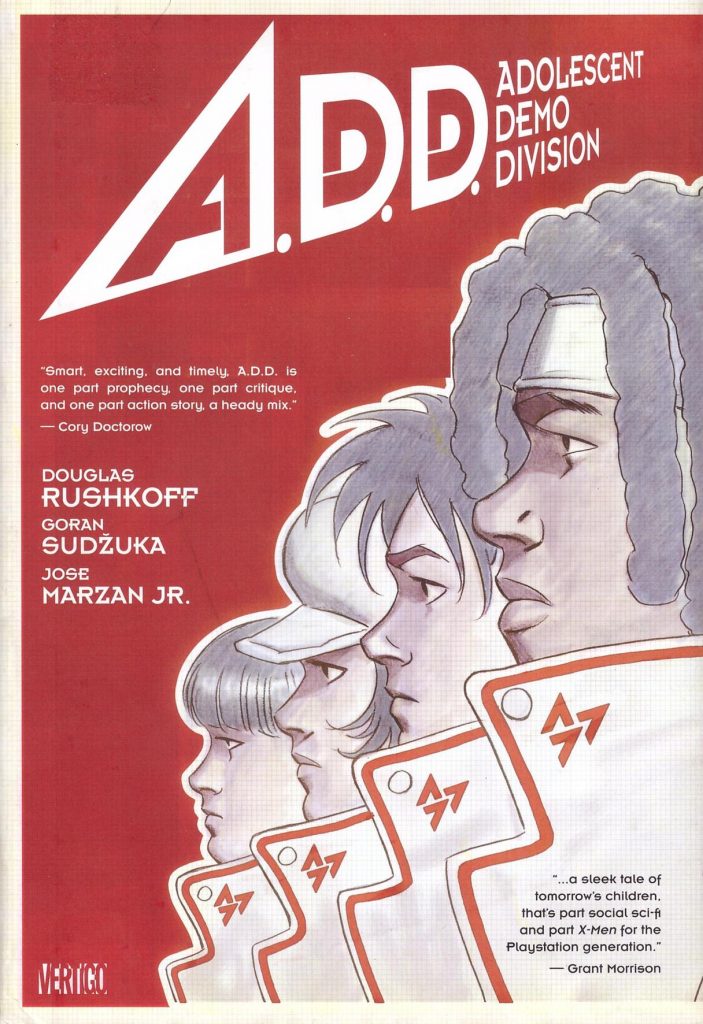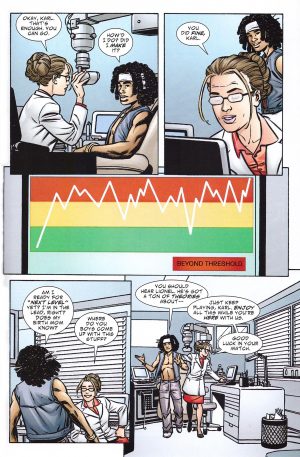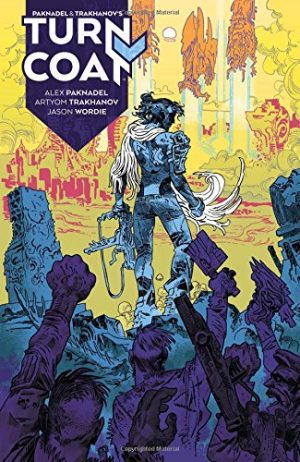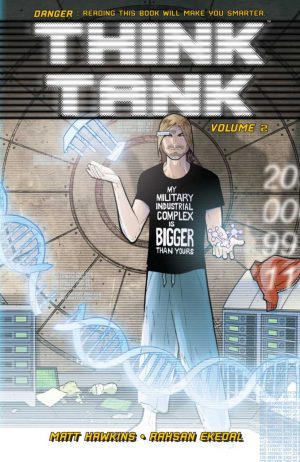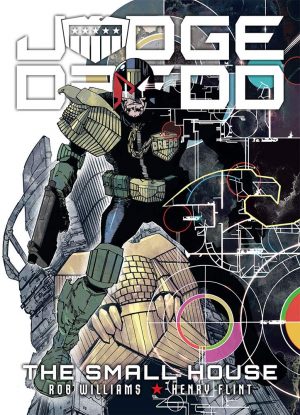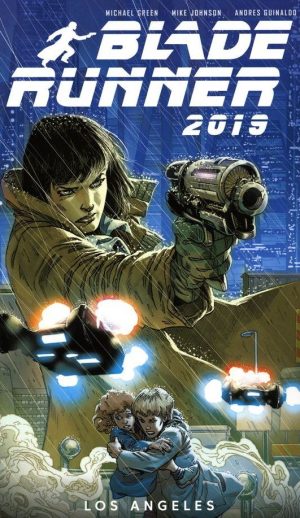Review by Frank Plowright
The Adolescent Demo Division is Nextgen Inc’s squad of teenage game prodigies, whose reactions are so perfectly refined when they enter their virtual reality environments they’re unbeatable. Maintaining these standards requires supervision, so the A.D.D. are housed at a corporate base where they can be supervised, monitored and scrutinised, because while on the surface aspects of their life are enviable, beneath there’s something rotten, and Lionel is beginning to see beneath. When he interacts with a game ostensibly about ants he realises he’s also inputting army recruitment footage, and Douglas Rushkoff makes it clear from the start that Next Gen prioritise profits over welfare. He envisages an environment where the lines between game and reality are so blurred the adolescents no longer believe reality.
In order to be sympathetic it’s necessary that the kids are realistic, and Goran Sudžuka’s visual characterisation hits the right notes. Because his art flows so smoothly, it takes some time to realise how completely he’s ensuring we feel for the youngsters by the expressions and the viewpoints, presenting the vulnerabilities of the cast. He also creates a futuristic living and office environment, but is a grounded artist, and the sequences that should be visual highlights, the in-game experiences, look very ordinary.
Strip back Sudžuka’s futuristic veneer and the made up terminology, and A.D.D. is a standard action thriller, that never really grips. Is it fatigue syndrome that mistrust of real world corporations has reached such high levels that we always expect their fictional counterparts to be sinister, unethical and immoral? Perhaps, but for all that the remainder is also unsatisfying. Too much time is spent on establishing the children, while the possibility to contrast their lives with an extended spell in the real world is a missed opportunity, and the strained, ambiguous ending is unsatisfying. It leaves A.D.D. as a graphic novel with some nice moments, but otherwise average.
